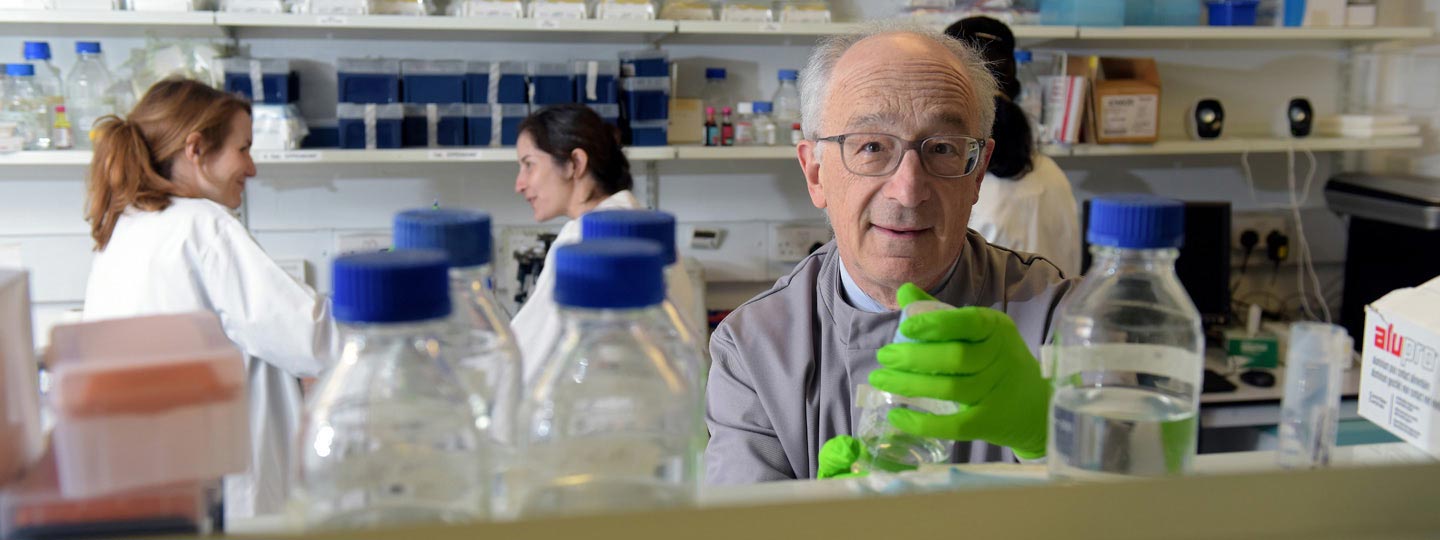Four new research projects to help us detect arthritis early and treat it more effectively
23 August 2024
We’re delighted to announce the funding of more discovery research projects that aim to help us quickly and effectively diagnose and treat arthritis. Discovery research projects help us understand the underlying science behind arthritis conditions.
A quick and accurate diagnosis is essential for people with arthritis - and so are personalised treatments that tackle arthritis before it does too much damage to the joints or other parts of the body. We know that the longer arthritis is left untreated, the worse symptoms, joint function, and quality of life can be.
That’s why we fund research that focuses on two priority areas: the early detection and prevention for arthritis and targeted treatments of arthritis.
Learn more about our Research Strategy here
How are we helping to accelerate the diagnosis and treatment of arthritis?
We have awarded millions of pounds to researchers to drive new discoveries that will improve the diagnosis and treatment of arthritis and related conditions.
These research projects cover both early-stage research to help us understand the basics of arthritis, known as discovery science, as well as clinical trials that could help us translate these new findings into better diagnosis and treatment.
Read below to learn more about the £3.3M of amazing discovery science that we are funding! And read about our brand-new clinical trials here.
With your help, we can continue funding research to find better treatments, sooner
What triggers rheumatoid arthritis symptoms in at risk people?
This is the question being asked by Professor Mariola Kurowska-Stolarska and her team at the University of Glasgow.
Rheumatoid arthritis is a painful autoimmune condition affecting around 450,000 people in the UK.
Scientists and doctors can identify people who are at risk of rheumatoid arthritis, but don’t yet have symptoms of joint pain or swelling. These people are pre-rheumatoid arthritis.
How pre-rheumatoid arthritis develops into the full disease is not well understood.
Professor Mariola Kurowska-Stolarska’s team will be looking into which molecules in the body cause this to happen. Understanding these processes will help us find molecules that could be targeted by medicines to stop people developing the full disease.
This could lead to preventative drugs that halt inflammation, and prevent joint damage and the more widespread effects of rheumatoid arthritis.
Could fixing gut leakiness treat autoimmune disease?
While we know that genetics is a major factor in the development of rheumatoid arthritis, environmental factors also play a huge role. These often change how our immune system behaves, increasing the risk of the disease.
Gut leakiness, where the cells in our gut become damaged and allow new molecules and bacteria to pass into the blood, is known to cause changes to the immune system.
At University College London, Professor Claudia Mauri and her team want to address:
- How the gut lining differs between people with rheumatoid arthritis and those who are healthy.
- How gut lining cells and associated molecules interact with immune system cells.
- If molecules involved in the health of the gut lining cells can be used to detect or treat rheumatoid arthritis.
If fixing a leaky gut could help reduce rheumatoid arthritis symptoms, medicines could be developed that do exactly that. Furthermore, people with arthritis could make informed lifestyle changes that help with gut health.
Research like this aims to bring an end to arthritis
Can we remove tired cells to treat osteoarthritis?
Some old cells in the body no longer multiply themselves but stick around in the body.
These cells don’t function or behave like normal cells. Previous research has shown these cells contribute to the damage seen in osteoarthritis and lower back pain by causing an imbalance in the repair and maintenance of the cartilage.
Professor Christine Le Maitre and her team at the University of Sheffield want to understand the processes behind this damage to see if removing these tired cells can stop this damage.
They will then test different medicines that could stop these processes, in the hope of treating osteoarthritis and lower back pain.
But how will they test these medicines?
Professor Le Maitre and her team will test these medicines in clinical samples donated from people who have undergone knee replacement surgeries. They hope that their research can lead us closer to a medicine that can target the causes of osteoarthritis and not just the symptoms.
How do people develop systemic lupus erythematosus, and can this be prevented?
Systemic lupus erythematosus (SLE) is a condition that affects around 70,000 people in the UK. This disease includes arthritis as a symptom but also increases the risk of heart and kidney disease.
Currently, there are limited medications for those with lupus. They often need a high level of immunosuppression, which can put them at higher risk of infection. These treatments are also often ineffective at treating the disease.
But what if we could prevent the disease?
Some people with lupus test positive for Antinuclear Autoantibodies (ANA). These ANAs, which cause our bodies to attack our own cells, may appear years before lupus symptoms. However, only a small proportion of people with ANAs go on to develop lupus.
At the University of Leeds, Dr Edward Vital and his team of researchers want to know why some people with ANAs do, and others do not, get lupus. They also want to find out if removing these ANAs with medication can stop people going on to get lupus.
This could mean preventing the disease in this at-risk group, stopping any damage or pain before it has even taken place!
Support our research
We won’t stop supporting scientists across the UK who are working to end arthritis. Research projects like these aim to get us closer to real benefits for people with arthritis.
With your help, we can fight for a future free from arthritis